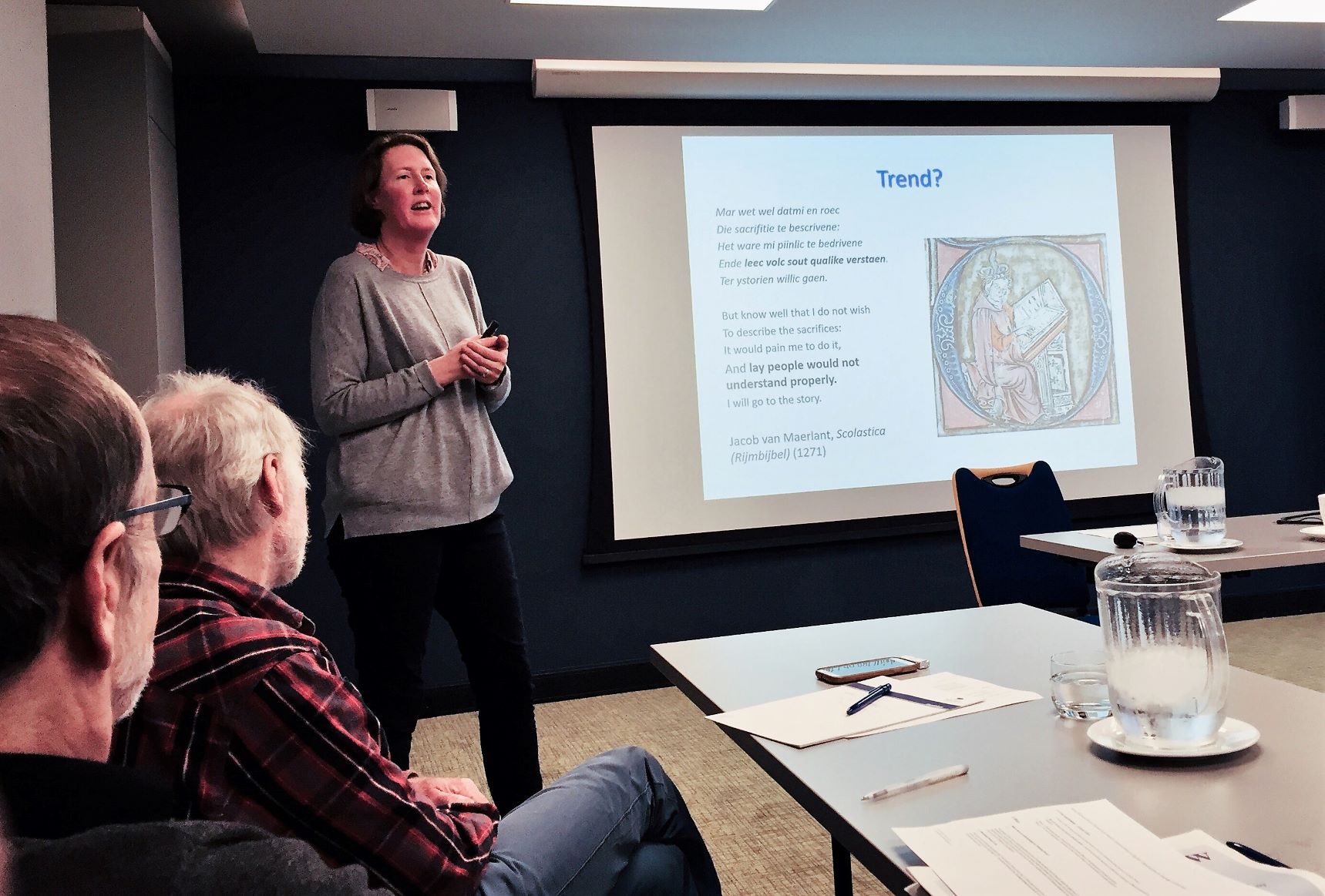
UniSIG launched its 2019 programme with a presentation by SENSE member and academic editor and lecturer Maria Sherwood-Smith on ‘Outreach and research communication in English: Opportunities for language professionals’. This was an opportunity for members who had missed her SENSE 2018 conference session in June to attend a reprise. The chord she and her subject-matter struck with the 19 participants (including three newcomers to UniSIG) made for a lively, interactive session from which all left seriously thought-provoked. SENSE members John Linnegar and Theresa Truax-Gischler report back.
Communicating one’s research is a challenge at the best of times, but doing so in a second language to a variety of audiences, some of them multidisciplinary, some lay, is often beyond the capabilities of many a researcher. With the increasing emphasis in research funding on communication with non-specialists, policy-makers and the public, this new genre of speaking and writing has become a core academic competency, a reality many universities have been slow to embrace. Enter the language professionals – either as copywriters, editors or translators, or as teachers of writing and communication – to help researchers ‘sell’ their work to funding agencies, industry, government and the general public.
In a master’s course at Leiden University, Maria and two subject specialists work with the students at honing the content and structure of a brief research talk. Maria shared the ‘Daisy model’ applied in this course as a way of effectively organizing and presenting complex research. The model alerts authors to the genres and registers that best suit their target audience. In doing so, it points writers and speakers towards identifying their core message, expressing it in everyday, non-technical language and indicating its relevance to broader societal issues.
The vexed matter of formulating and wording grant applications took up much of the session, with a range of stimulating views being expressed around the room; but the drafting of brochures, blogs, websites, tweets, pubcasts and similar communications has also become necessary nowadays. For these media, experts other than the researcher are often needed. But how will they be accommodated and funded by institutions of higher education? Perhaps in combination with teaching academic writing and presentation skills or via the creation of university writing centres?
These and other issues were echoed in the animated Q&A exchanges with which the event ended – continuing into the drinks session that ensued. The takeaway message? There is a great need for language practitioners with the expertise to convert (or to teach how to convert) texts so that they communicate effectively to diverse audiences; but will the universities be able to deliver?
SENSE has a number of special interest groups (SIGs) which meet regularly throughout the country. They are open to all members, and guests are welcome to attend one or two meetings before deciding whether they would like to join SENSE. See the events calendar for more details.